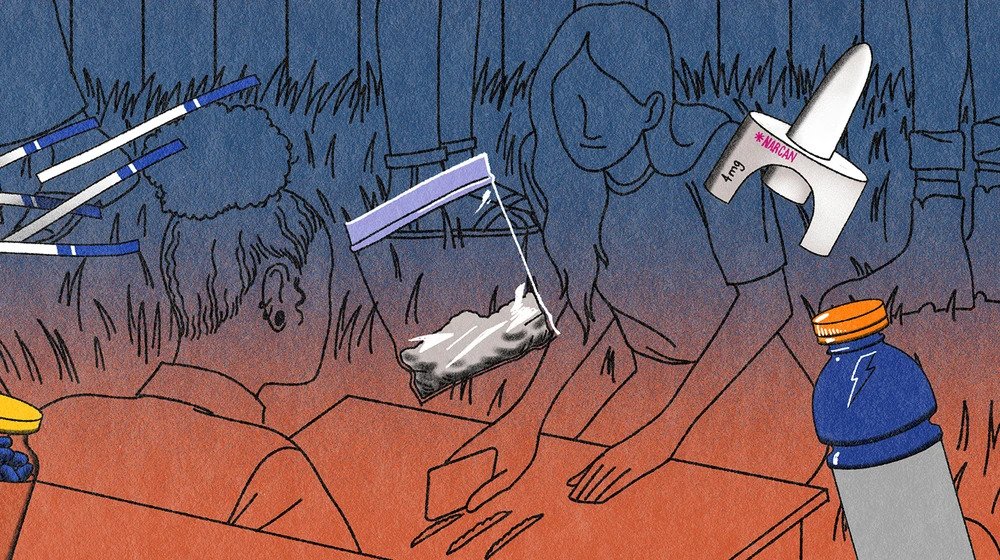On Aug. 24, Making Drugs More Accurate (MDMA), a non-profit organization piloted by the Canadian Students for Sensible Drug Policy (CSSDP) chapter at McGill, launched their free drug-checking and harm reduction service for McGill students.
In a 2019 survey conducted by CSSDP McGill, 86 per cent of students demonstrated interest in an accessible drug checking service on campus. A group of students who were eager to contribute to the initiative assembled a team to execute CSSDP’s vision and respond to student demand.
After consulting different supervised injection sites, harm reduction organizations, and overdose prevention sites in Montreal, MDMA now allows students to order free, personalized kits with chemical reagents that identify substances and verify their compositions. On their website, substance-specific instructions guide students through every step of the testing process.
The testing kits, sourced from DoseTest and Test Kit Plus, can confirm the presence of ecstasy, ketamine, LSD, cocaine, amphetamine, and opiates in the body. Each kit also includes testing strips that can detect the presence of fentanyl—a potent synthetic opioid that greatly increases the risk of accidental overdose.
The greatest challenge for the MDMA team was realizing a method of distribution that did not require students to compromise their personal information. By requesting a unique code word from users on the order form, MDMA is able to preserve clients’ anonymity while delivering the kits.
In an interview with The McGill Tribune, Jordan*, the founder of MDMA, explained the organization’s non-judgemental, non-coercive, harm reduction approach to drug use.
“Ultimately, our job is not to tell people what they can and cannot use,” Jordan said. “Our job is to give people the information so that they can have a better idea of what they’re putting in their bodies, the consequences of it [….] We would like to empower people’s decision making and nothing more than that.”
The team hopes to connect students with resources and information that can facilitate safer experiences with drugs. Jordan emphasized the importance for students to be educated, even when equipped with harm reduction tools, on the ever-present risks of substance use.
“[MDMA’s] goal is to promote a greater degree of safety, though it’s important to remember that drug use carries inherent risk,” Jordan said. “You can never reach safety with drug use.”
Allison Chow, U3 Science and member of the MDMA team, hopes to dismantle the stigma surrounding substance use on campus. Condemning and prohibiting drug use, Chow explained to the Tribune, makes support less accessible and places students at greater risk of drug-related injury.
“If you purport the idea of drug abstinence, you are just going to get negative consequences, [like] people overdosing, or [not knowing] when to call for help because they’re scared of repercussions,” Chow said. “Good Samaritan laws are a step in the right direction, but more needs to be done.”
To glean insight on the unregulated drug supply students are in contact with, MDMA will be anonymously collecting and analyzing the results of their clients’ reagent tests. These statistics will provide important grounds not only for growing MDMA’s own presence at McGill, but also for motivating the implementation of similar harm reduction services at other Canadian universities.
Although the service launched just this past month, the MDMA team said it has received positive responses from students who either support the project or want to get directly involved as volunteers.
“Every class I go to, whenever I make a new friend, they are very interested in [the service],” Chow said. “I think that this is something that people want and need.”
MDMA is currently looking to expand their outreach and welcomes anyone interested in helping students.
“You don’t need to be a drug user to join,” Chow said. “You just need to care about human beings, harm reduction, and be compassionate.”
*Name has been changed.









